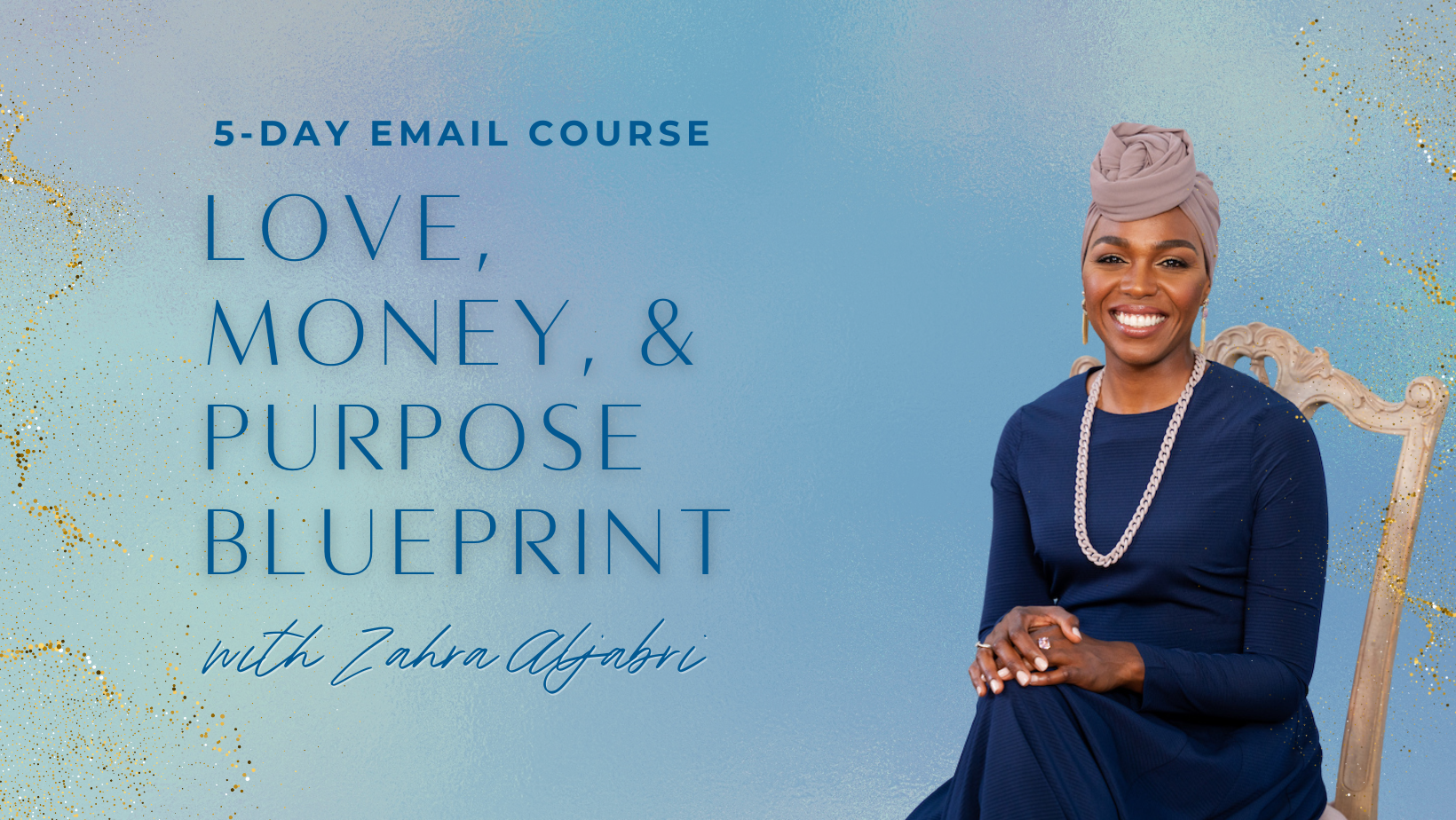As salamu Alaykum!
Welcome to Day 2 of The Love, Money and Purpose Blueprint.
Today we are talking about Mistake #2: Blocking Blessings Even After You Pray. Specifically:
- The reason Professional Women deflect gifts, help, and even answered du’as.
- How that turns du’as into lip service instead of lived experience.
- The shifts that let you actually receive without guilt or second-guessing.
Let’s dive in.
THE MISTAKE: BLOCKING BLESSINGS EVEN AFTER YOU PRAY
I learned to give before I ever learned to receive.
Maybe you did too.
Beautiful intentions but dangerous side effects.
Because when “receiving” feels wrong, your du’a shrinks.
You ask for what feels manageable, not what you truly want.
You deflect compliments. You downplay needs. You feel like a burden.
If receiving feels heavy or “too much,” you’re not broken. You were trained that way.
But how?
THE REASON THIS HAPPENS
I have this memory of me as a young girl with a beautiful dress.
We had company over one day, and another little girl also liked the dress. Mom told me to give it to her. I didn’t want to, but I wasn’t given a choice. When we were at someone’s house and offered anything, my parents would quickly jump in to protest — “Oh no, they don’t need it, thank you.”
Many of us grew up always being the giver. Without realizing it, we were taught not to be okay with receiving. So now, even something as small as accepting a glass of water can feel like being a burden.
This leads to:
- Deflecting good things: An incapacity to accept even compliments. If someone says something as simple as “I like your dress”, we rush to justify and deflect it. Oh this? I got it on sale/I had it for years, it's old!/ It's my sister's. This deflection for small things prevents capacity for bigger things. If we can’t appreciate and hold the small things, it will be almost impossible to accept the bigger things.
- Making du’a for small things: We make du’a only for things that feel manageable, for which we can envision a clear map of how to get. Even if we ask for more, it's superficial, the heart isn't in it.
- Guilt and shame: It feels selfish and ungrateful to ask, so we have all sorts of conversations in our head “I don't really need it. Others are suffering, and I want this?” This struggle, especially if the desire is for dunya things, will stop us from being committed to our du’as and the actions it needs.
- Seeing Allah as Tit for Tat: There’s a view of Allah that has seeped into us from surrounding cultures: we start seeing Him as transactional. If we slip up, we feel like we’ve violated the religion and think, "How can I expect good things as a “bad” Muslim?” It becomes a simple equation in our minds: I did good, so I deserve this. I did bad, so I won’t get that.
HOW TO FIX IT
Even the one who disobeyed worse than anyone else, the very embodiment of arrogance and defiance, asked from Allah without shame.
When Iblis was about to be kicked out of Jannah for disobeying Allah, he asked for a du’a. He did not shy away from his request, or tell himself "oh what if it's too much, I just did this horrible thing, who am I to ask?”
This shows you don't need to be ashamed or shy to ask Allah SWT, and it's the key to improving your capacity to receive.
That's all manifestation is, asking for what you truly want, and genuinely believing you will receive it.
Start here:
- Make a list of things you would want if no one was to question it.
- Ask for them in dua.
- Believe—not with “I don’t know if it’s possible,” but with conviction that Allah can.
- Receive.
When you ask with this openness, your dua is no longer just a request; it transforms the way you view Allah.
Reframing Allah
Allah loves your dua because it affirms:
You have no power.
Allah has all power.
But don’t confuse Allah’s power and mercy with ease. Even the prophets faced challenges. Having Allah with you doesn’t mean life will be smooth, it means you’re guided, even through the bumps and obstacles.
Allah’s mercy isn’t petty nor does it require your perfection. The hadith is clear: If we never sinned, Allah would replace us with people who do, because He loves repentance. So if you’re still here, breathing, alive, it means Allah’s mercy is with you. Don't put your own limitations and judgments on Allah SWT.
Remember: Allah provides for everyone—the believer, the disbeliever, the animal, the plant.
DON’T FORGET TO CHECK YOUR INBOX TOMORROW!
Phew! We covered even more today. I am so proud of you for your courage and for still being here through this course. Stick with the process, and I promise the new you will thank you later.
Stay tuned for tomorrow, we will dig into Mistake # 3: Tolerating misery in your professional career
Specifically:
- Why success feels empty, no matter how much you achieve.
- How chasing status or approval steals joy and fulfillment from your daily life.
- The shift that reconnects your career, faith, and personal purpose so work feels meaningful.
Keep an eye on your inbox, you won’t want to miss this!
With love,
Zahra
P.S. A resource to get deeper insights on your thoughts and processes:


